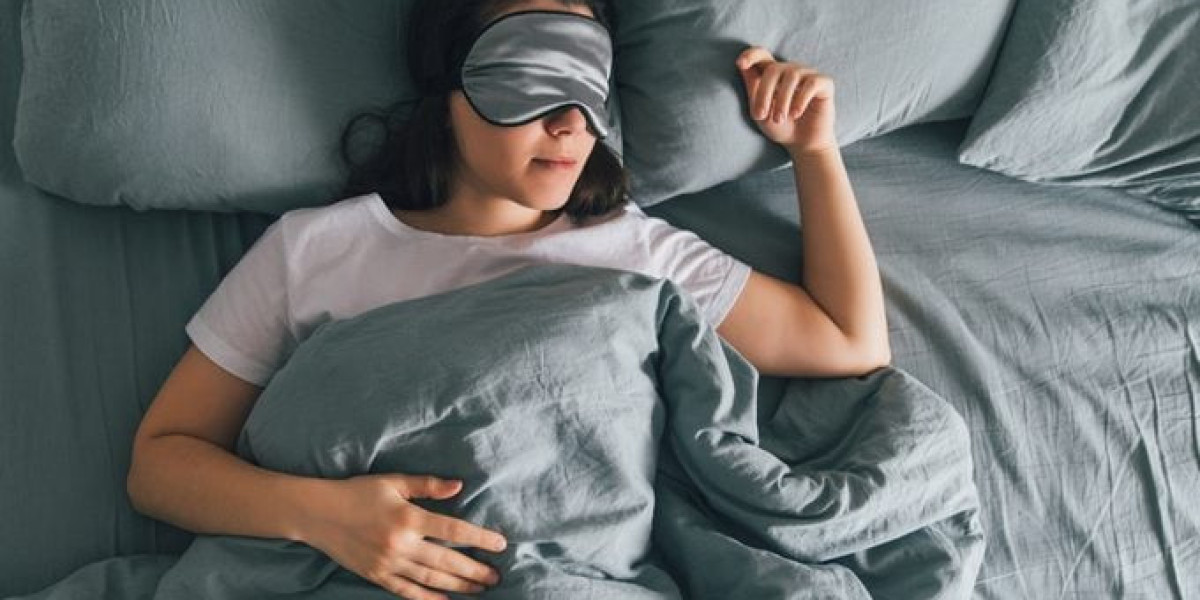Many people suffer through restless nights, assuming poor sleep is something they just have to live with. But chronic sleep issues can affect your physical health, mental well-being, and overall quality of life. If your sleep problems persist despite lifestyle changes or over-the-counter remedies, it may be time to consult a sleep specialist MD.
A sleep specialist MD is a medical doctor trained specifically in diagnosing and treating sleep disorders. They go beyond general advice and offer evidence-based solutions that target the root cause of your sleep problems.
1. You Struggle to Fall Asleep or Stay Asleep for More Than Three Weeks
Occasional sleepless nights are common. But if you find it difficult to fall asleep, stay asleep, or wake up too early consistently for more than three weeks, it’s considered chronic insomnia.
A sleep specialist MD can:
Identify potential medical or psychological causes of insomnia
Help you break negative thought patterns around sleep
Offer treatments such as cognitive behavioral therapy for insomnia (CBT-I)
Long-term sleep disruptions rarely resolve on their own. Addressing them early with a specialist can lead to faster, more effective recovery.
2. You Rely on Sleep Medications or Supplements Regularly
Many people reach for melatonin, antihistamines, or prescription sleep aids to manage sleep difficulties. While these can offer short-term relief, regular use without medical guidance may mask underlying issues.
A sleep specialist MD will:
Evaluate whether your medications are helping or hurting your sleep
Provide safer, long-term solutions like CBT-I
Help you gradually taper off unnecessary or harmful sleep medications
Self-medicating is not a substitute for professional treatment—especially when natural sleep cycles are being altered without supervision.
3. You Snore Loudly or Gasp During Sleep
Snoring can be harmless, but loud, persistent snoring—especially when accompanied by choking or gasping—can indicate obstructive sleep apnea (OSA). Left untreated, OSA increases the risk of:
High blood pressure
Heart disease
Stroke
Type 2 diabetes
A sleep specialist MD may recommend a sleep study (polysomnography) to diagnose sleep apnea. Based on the results, treatment options could include CPAP therapy, positional therapy, or oral appliances.
4. You Wake Up Feeling Exhausted, No Matter How Long You Sleep
If you get 7–9 hours of sleep but still wake up feeling drained, your sleep may be ineffective due to an undiagnosed condition like:
Sleep apnea
Restless legs syndrome (RLS)
Periodic limb movement disorder (PLMD)
Narcolepsy
These conditions affect the quality—not just the quantity—of your sleep. A sleep specialist MD uses tools like actigraphy, sleep logs, and overnight studies to get to the root of unrefreshing sleep.
5. Your Sleep Problems Are Affecting Work or Daily Life
Lack of sleep can have ripple effects on your ability to function. Signs of sleep-related impairment include:
Difficulty concentrating
Memory lapses
Irritability or mood swings
Increased caffeine dependence
Drowsy driving
If sleep issues are beginning to interfere with your productivity or relationships, it's time to involve a professional. A sleep specialist MD will assess the full impact of your symptoms and tailor a solution to fit your lifestyle.
6. You Work Odd Hours or Frequently Travel Across Time Zones
People who work night shifts, rotating shifts, or frequently fly across time zones often suffer from circadian rhythm disorders. These conditions disrupt your body’s internal clock, leading to insomnia, fatigue, or excessive daytime sleepiness.
A sleep specialist MD may recommend:
Bright light therapy
Strategic use of melatonin
Chronotherapy to reset your biological rhythm
Rather than treating these issues as mere "jet lag" or shift work fatigue, a sleep doctor uses science-backed methods to optimize your alertness and performance.
7. You’ve Tried Lifestyle Changes Without Improvement
Sleep hygiene practices like limiting screen time, avoiding caffeine, or setting a consistent bedtime are helpful. But they’re not always enough.
If you’ve tried improving your sleep environment and habits but still struggle, a sleep specialist MD can:
Identify if another medical condition is contributing
Use diagnostic tools to analyze your sleep cycle
Design a comprehensive, individualized treatment plan
They go far beyond surface-level solutions to uncover the deeper causes of your sleep problems.
What to Expect at Your First Sleep Specialist Appointment
Visiting a sleep specialist MD is a proactive step toward better rest. During your first appointment, you can expect:
1. A Comprehensive Sleep History
You’ll discuss:
When your sleep problems started
Your current sleep-wake schedule
Any snoring, night awakenings, or nightmares
Lifestyle factors (stress, diet, caffeine, alcohol)
2. Sleep Tracking and Questionnaires
You may be asked to:
Maintain a sleep diary for 1–2 weeks
Complete questionnaires like the Epworth Sleepiness Scale
3. Diagnostic Testing
Depending on your symptoms, your doctor might recommend:
Polysomnography (overnight sleep study)
Home sleep apnea test
Actigraphy (a wearable tracker to monitor sleep over several days)
Benefits of Seeing a Sleep Specialist MD
Seeing a sleep specialist MD can offer life-changing benefits:
Accurate Diagnosis: They can distinguish between similar symptoms that stem from different disorders.
Customized Treatment: Solutions are tailored to your unique body, lifestyle, and symptoms.
Better Health: Treating sleep disorders can reduce your risk of chronic illness.
Improved Mood and Focus: Restorative sleep enhances your emotional regulation and cognitive performance.
Reduced Dependency on Sleep Aids: Learn how to fall asleep naturally again—without needing pills.
FAQs About Sleep Specialist MDs
1. Do I need a referral to see a sleep specialist MD?
This depends on your insurance provider. Some allow direct appointments, while others require a referral from a primary care physician.
2. How is a sleep specialist MD different from a general doctor?
A sleep specialist MD is board-certified in sleep medicine and trained specifically to diagnose and treat over 80 different sleep disorders.
3. Will I need to undergo a sleep study?
Not always. It depends on your symptoms. If conditions like sleep apnea are suspected, your doctor may recommend a sleep study.
4. Are sleep disorders really that serious?
Yes. Untreated sleep issues can lead to heart disease, diabetes, depression, and accidents due to drowsiness. Getting proper treatment is vital.
5. How long does treatment usually take?
This varies based on the disorder. Insomnia treated with CBT-I often improves within 6–8 weeks. Conditions like sleep apnea require ongoing management.








